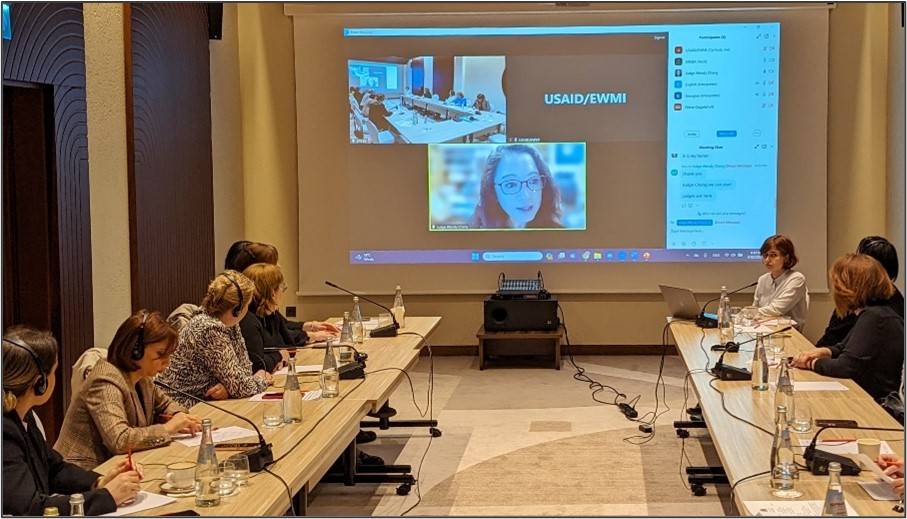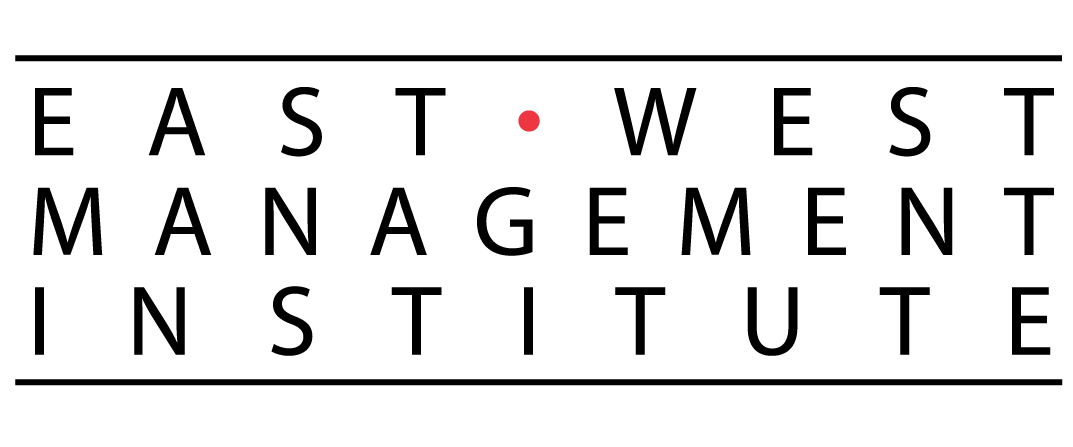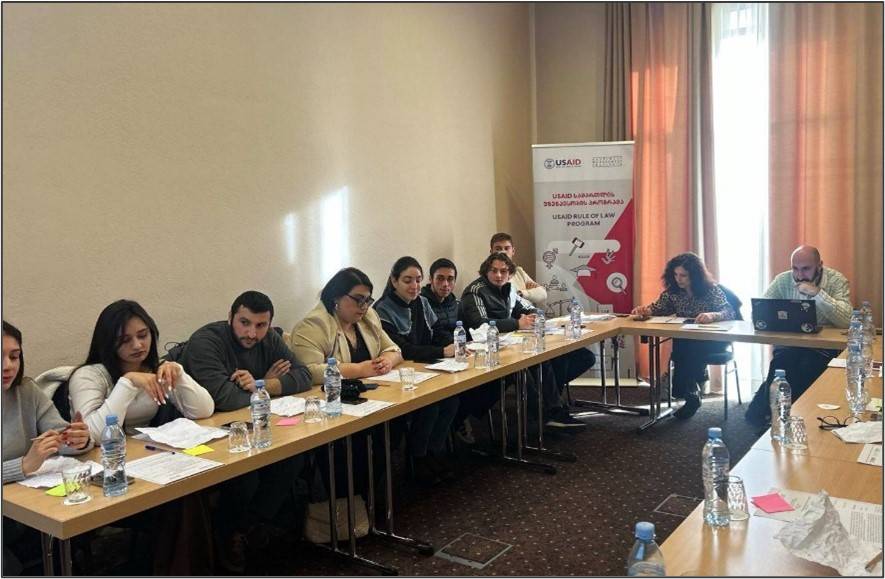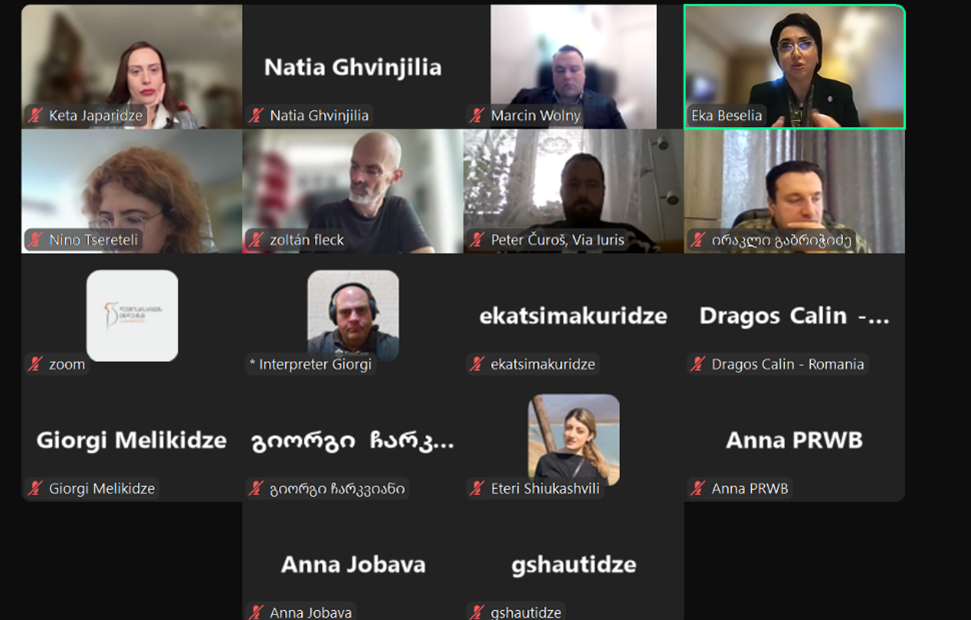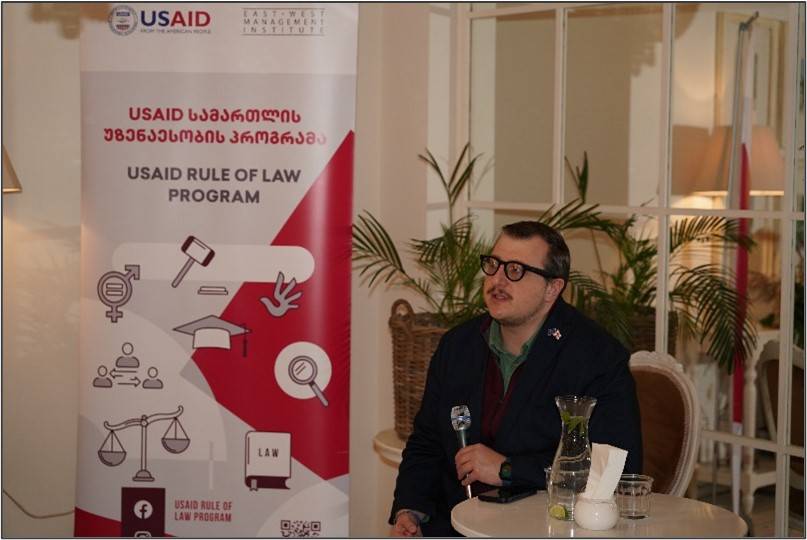U.S. Judges Share Knowledge and Experiences in Combatting Sexism and Discrimination in the Courtroom
On March 30, 2024, the USAID Rule of Law Program supported a joint meeting of Rule of Law Practice Groups on Women’s Rights and Freedom of Expression on the issue of discouraging sexist and discriminatory behavior in the court system.
Eleven Georgian judges and their assistants gathered along with the U.S. Judge, Timothy J. Baland (ret.) to discuss appropriate responses to the verbal attacks, humiliation, and shaming women trial participants often must endure, including women judges, both in the courtroom and in social media. At the beginning of the meeting, Judge Baland introduced some of the legal resources that guide participants in U.S. court proceedings, particularly those requiring lawyers to behave in a civilized and respectful manner in court. He compared available Georgian regulations to similar regulations of the states of New York and California, which provide much more extensive and detailed guidance than Georgian regulations in this regard. He invited the Georgian judges to consider the need for similar rules of conduct/decorum for the Georgian courts to regulate the abusive and discriminatory behavior of parties.
Later, in the evening, Judge Wendy Chang (Los Angeles Superior Court, California) joined the meeting online. As a former member of the ABA’s Standing Committee on Ethics and Professional Responsibility, she was the driving force in amending the ABA Model Rules of Professional Conduct which declared harassment and discrimination to be professional misconduct for lawyers. She shared the story of how Model Rule 8.4 (g), was amended after bar members were persuaded how omnipresent the experience of harassment and discrimination was for female attorneys. She also spoke about how concerns about restricting the lawyers’ freedom of expression were addressed through specific defenses added to the text. Most importantly, Judge Chang explained that a general prohibition of discrimination and harassment does not guarantee respectful behavior in the courtroom and there is a need for additional rules of civility for trial participants. Judge Chang also answered questions from Georgian judges on how best to respond to abusive and harassing behavior from court participants and shared her own strategies for handling such behavior.
The USAID Rule of Law Program is actively working with the Women’s Rights and Freedom of Expression Practice Groups to address the problem of sexism and discriminatory treatment in the courtrooms and to support judges in securing more respectful conduct from trial participants and a non-discriminatory atmosphere for women in the courtrooms.
